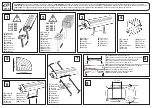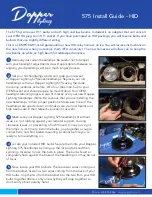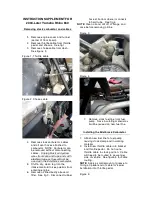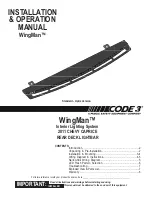
503
Driving
Fuel Economy and CO
2
Emissions
Improving Fuel Economy and Reducing CO
2
Emissions
Achieving fuel economy and reducing CO
2
emissions is dependent on several
factors, including driving conditions, load weight, idling time, driving habits, and
vehicle condition. Depending on these and other factors, you may not achieve the
rated fuel economy of this vehicle.
You can optimize your fuel economy with proper maintenance of your vehicle.
Always maintain your vehicle in accordance with the messages displayed on the
multi-information display.
•
Use the recommended viscosity engine oil, displaying the API Certification Seal.
•
Maintain the specified tire pressure.
•
Do not load the vehicle with excess cargo.
•
Keep your vehicle clean. A buildup of snow or mud on your vehicle’s underside
adds weight and increases wind resistance.
■
Maintenance and Fuel Economy
1
Improving Fuel Economy and Reducing CO
Direct calculation is the recommended method to
determine actual fuel consumed while driving.
In Canada, posted fuel economy numbers are
established following a simulated test. For more
information on how this test is performed, please visit
Miles driven
Gallons of
fuel
Miles per
Gallon
100
Liter
Kilometers
L per 100 km
Summary of Contents for RIDGELINE 2017
Page 1: ...2017 OWNER S MANUAL ...
Page 30: ...28 ...
Page 44: ...42 Safe Driving Airbags Airbag System Components 12 6 7 9 10 8 8 8 8 11 8 ...
Page 110: ...108 ...
Page 506: ...504 ...
Page 554: ...552 ...
Page 588: ...586 ...
Page 610: ......
















































